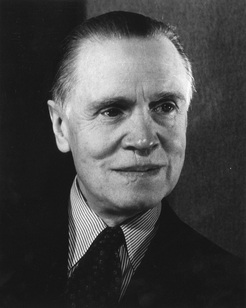My Mentors
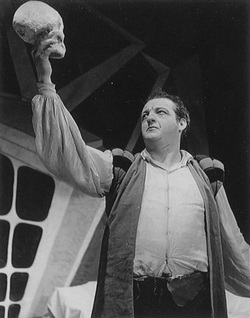 Deacon Crain
Deacon Crain
DEACON CRAIN
When I was awarded a full scholarship to Juilliard, I didn't think I could accept it because I didn't have the money to buy a plane ticket, get an apartment, or money to live while I was in school. Dr. Hodge called me to congratulate me on the scholarship award, and I told him such. The next day I was sitting on my front steps of my apartment feeling sorry for myself when a big black Lincoln drove up the driveway. A black chauffeur opened the door and an elderly man emerged. He said “I’m Deacon Crain and I've seen all of your shows at UT and I’m a big fan.” He handed me an envelope and he said, “I think this will be enough to get you going in New York,” and he got back in the car and drove away.
He's the father of Austin Theater. He funded all of the theaters in town. When the light bill needed to be paid, he paid it. If a production didn’t have money for costumes, he paid for them. He provided the funds to make things happen. He was a Texas oil millionaire who simply loved theater. He never missed a new show on Broadway. The Austin Circle of Theaters now has a scholarship awarded annually, in his name. Deacon Crain is in my prayers everyday.
When I was awarded a full scholarship to Juilliard, I didn't think I could accept it because I didn't have the money to buy a plane ticket, get an apartment, or money to live while I was in school. Dr. Hodge called me to congratulate me on the scholarship award, and I told him such. The next day I was sitting on my front steps of my apartment feeling sorry for myself when a big black Lincoln drove up the driveway. A black chauffeur opened the door and an elderly man emerged. He said “I’m Deacon Crain and I've seen all of your shows at UT and I’m a big fan.” He handed me an envelope and he said, “I think this will be enough to get you going in New York,” and he got back in the car and drove away.
He's the father of Austin Theater. He funded all of the theaters in town. When the light bill needed to be paid, he paid it. If a production didn’t have money for costumes, he paid for them. He provided the funds to make things happen. He was a Texas oil millionaire who simply loved theater. He never missed a new show on Broadway. The Austin Circle of Theaters now has a scholarship awarded annually, in his name. Deacon Crain is in my prayers everyday.
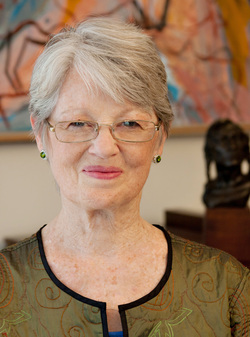 Ellie Ellsworth
Ellie Ellsworth
ELLIE ELLSWORTH
For ten years I brought acting and vocal coach, Ellie Ellsworth to Austin to teach The Mastery, a weekend seminar that we introduced to Austin creatives. Ellie Ellsworth, actress/singer, artistic director and acting coach, played the lead in the original production of Jacques Brel is alive and well and living in Paris for 5 years and has played lead roles in South Pacific, The Fantasticks, The Threepenny Opera, and The Dialogues of the Carmelites. Her Cabaret act ran at Peregrine's at the Manhattan Theater Club. In 1977 she co-founded The Actors Institute in Manhattan and has directed over 100 shows in cabaret and theater and given many performing intensives in the US, Canada, UK, Europe and Israel. In 1989, she created the much-heralded Cabaret Symposium with Betsy White at the Eugene O'Neill Theater Center for which they received the Backstage Bistro Award for Outstanding Achievement in Cabaret. For the last 15 years or more she gives Cabaret performance workshops to grad students at the Boston Conservatory and teaches master classes in cabaret to members of the Ensign Darling Vocal Fellowship at the Bushnell Memorial in Hartford, CT. She is a mother of two and grandmother of four
For ten years I brought acting and vocal coach, Ellie Ellsworth to Austin to teach The Mastery, a weekend seminar that we introduced to Austin creatives. Ellie Ellsworth, actress/singer, artistic director and acting coach, played the lead in the original production of Jacques Brel is alive and well and living in Paris for 5 years and has played lead roles in South Pacific, The Fantasticks, The Threepenny Opera, and The Dialogues of the Carmelites. Her Cabaret act ran at Peregrine's at the Manhattan Theater Club. In 1977 she co-founded The Actors Institute in Manhattan and has directed over 100 shows in cabaret and theater and given many performing intensives in the US, Canada, UK, Europe and Israel. In 1989, she created the much-heralded Cabaret Symposium with Betsy White at the Eugene O'Neill Theater Center for which they received the Backstage Bistro Award for Outstanding Achievement in Cabaret. For the last 15 years or more she gives Cabaret performance workshops to grad students at the Boston Conservatory and teaches master classes in cabaret to members of the Ensign Darling Vocal Fellowship at the Bushnell Memorial in Hartford, CT. She is a mother of two and grandmother of four

CLU GULAGHER
Clu Gulagher was
Clu Gulagher was
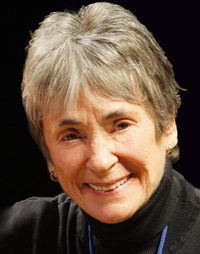 Marfo Harley
Marfo Harley
MARGO HARLEY
Margot Harley was the administrator of the Drama Division of The Juilliard Schoolfor its first twelve years. She was the champion of the scholarship students. Margot understood how difficult it was to finance living in New York while going to a challenging school. She never made you feel badly about how this was going to happen. She was positive and resourceful. We students would talk amongst ourselves about how competent and reliable she was as an advocate. I admired her greatly. Looking back, I believe Margot was the engine that drove the Drama Division. She kept everything running smoothly. Prior to her service to Juilliard, Margot appeared in numerous Broadway and off-Broadway productions as an actress and dancer. A graduate of Sarah Lawrence College, she attended LAMDA on a Fulbright Scholarship. She co-founded The Acting Company with the late John Houseman in 1972. Margot Harley is a powerhouse of brains and talent.
Margot Harley was the administrator of the Drama Division of The Juilliard Schoolfor its first twelve years. She was the champion of the scholarship students. Margot understood how difficult it was to finance living in New York while going to a challenging school. She never made you feel badly about how this was going to happen. She was positive and resourceful. We students would talk amongst ourselves about how competent and reliable she was as an advocate. I admired her greatly. Looking back, I believe Margot was the engine that drove the Drama Division. She kept everything running smoothly. Prior to her service to Juilliard, Margot appeared in numerous Broadway and off-Broadway productions as an actress and dancer. A graduate of Sarah Lawrence College, she attended LAMDA on a Fulbright Scholarship. She co-founded The Acting Company with the late John Houseman in 1972. Margot Harley is a powerhouse of brains and talent.
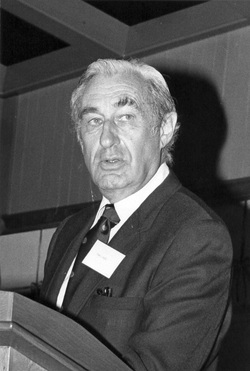 Fran Hodge
Fran Hodge
FRANCIS HODGE
Equally charming and cantankerous, Fran Hodge was my directing professor. He came to UT in 1949 the same year I was born. He retired in 1979 as Professor Emeritus. By the time I entered the department in 1969 he was no longer directing plays. My fellow students and I used to beg him to direct just one more play so we could be in it, but he was done. I guess after having directed 55 or so he wanted to utilize his energy teaching and supervising more than 100 master’s candidates through their departmental careers. As a mentor he was without peer; he held his students to high standards. He expected greatness: he demanded independence, creativity and critical thinking. He challenged his students and gave unstintingly of his experience, energy, and talents. Above all, he wanted to see work that was new and exciting. The challenge we all faced was how to create a piece that was interesting enough to get his attention.
Dr. Hodge was in charge of “Dem Lab”. Every Friday we would meet in the theatre and watch scenes directed by his directing students and acted by the acting students. It was thrilling. We were always so excited to participate. The whole department was watching and this was where you got to prove yourself worthy to be in the big productions in the Drama Department. I still use his book Play Directing: Analysis, Communication, and Style (Prentice-Hall, 1971). This book has become the seminal text for the teaching of directing technique throughout the United States. In 1972, he was named a Fellow of the American Theatre Association in recognition of his leadership and contributions to educational theatre.
Equally charming and cantankerous, Fran Hodge was my directing professor. He came to UT in 1949 the same year I was born. He retired in 1979 as Professor Emeritus. By the time I entered the department in 1969 he was no longer directing plays. My fellow students and I used to beg him to direct just one more play so we could be in it, but he was done. I guess after having directed 55 or so he wanted to utilize his energy teaching and supervising more than 100 master’s candidates through their departmental careers. As a mentor he was without peer; he held his students to high standards. He expected greatness: he demanded independence, creativity and critical thinking. He challenged his students and gave unstintingly of his experience, energy, and talents. Above all, he wanted to see work that was new and exciting. The challenge we all faced was how to create a piece that was interesting enough to get his attention.
Dr. Hodge was in charge of “Dem Lab”. Every Friday we would meet in the theatre and watch scenes directed by his directing students and acted by the acting students. It was thrilling. We were always so excited to participate. The whole department was watching and this was where you got to prove yourself worthy to be in the big productions in the Drama Department. I still use his book Play Directing: Analysis, Communication, and Style (Prentice-Hall, 1971). This book has become the seminal text for the teaching of directing technique throughout the United States. In 1972, he was named a Fellow of the American Theatre Association in recognition of his leadership and contributions to educational theatre.
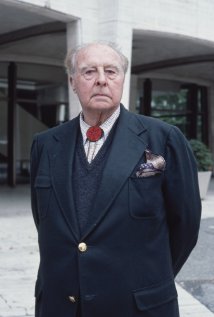 John Houseman
John Houseman
JOHN HOUSEMAN
John Houseman spent more than half a century in the theater as an influential producer and director and after retiring from the school of drama at the Juilliard School which he helped to establish, became famous at age 71 playing the law school professor in the film and TV series “The Paper Chase.” John was not at all like the curmudgeonly character he created. He was warm and friendly and lonely. He seemed to enjoy the family that comes with doing theatre. He was especially fond of the Group 1 students. They once paraded naked through his office just to see if they could get a reaction out of him!
He was co-founder and longtime artistic director of the Acting Company. I auditioned for him to get into Juilliard. He asked me why in the world did I do Hecuba’s monologue from “Trojan Woman”? The character was old and I was young. I said I related to the character’s suffering. He said, “ You’re a young Colleen Dewhurst but fussy like Geraldine Page.” I said, “I think that’s good. Are you going to take me?” He smiled and said, “Bill Woodman said I should, so OK.” At the end of my first year at Juilliard he asked me to drop out and join The Acting Company which was a huge honor. I declined because two of the directors he used (not Bill) were bad-tempered. I don’t know if he knew this or not. I got the feeling he did and was simply a passive, don’t-make-waves-type of man. He may have gotten used to prima donna behavior after teaming up with Orson Welles as co-founder of The Mercury Theater. The truth is I was scared of these men and I felt I would learn more being in school. Houseman told me I was making a big mistake. Maybe, but there is more to life than a career. Being just an actor was starting to feel too ego-centric and shallow. I also felt myself falling backwards into myself with no solid core to land on. I thought it would be better for me to eventually come back to Austin and do analysis and look for a spiritual path to follow. I’m not really a city girl. I like big sky country and nature and beauty. These things reduce my stress. I tried living in New York again after my stint at Oregon Shakespeare but I just didn’t want to do it anymore. I am forever grateful to John Houseman for accepting me into Juilliard and allowing me to have the New York experience.
John Houseman spent more than half a century in the theater as an influential producer and director and after retiring from the school of drama at the Juilliard School which he helped to establish, became famous at age 71 playing the law school professor in the film and TV series “The Paper Chase.” John was not at all like the curmudgeonly character he created. He was warm and friendly and lonely. He seemed to enjoy the family that comes with doing theatre. He was especially fond of the Group 1 students. They once paraded naked through his office just to see if they could get a reaction out of him!
He was co-founder and longtime artistic director of the Acting Company. I auditioned for him to get into Juilliard. He asked me why in the world did I do Hecuba’s monologue from “Trojan Woman”? The character was old and I was young. I said I related to the character’s suffering. He said, “ You’re a young Colleen Dewhurst but fussy like Geraldine Page.” I said, “I think that’s good. Are you going to take me?” He smiled and said, “Bill Woodman said I should, so OK.” At the end of my first year at Juilliard he asked me to drop out and join The Acting Company which was a huge honor. I declined because two of the directors he used (not Bill) were bad-tempered. I don’t know if he knew this or not. I got the feeling he did and was simply a passive, don’t-make-waves-type of man. He may have gotten used to prima donna behavior after teaming up with Orson Welles as co-founder of The Mercury Theater. The truth is I was scared of these men and I felt I would learn more being in school. Houseman told me I was making a big mistake. Maybe, but there is more to life than a career. Being just an actor was starting to feel too ego-centric and shallow. I also felt myself falling backwards into myself with no solid core to land on. I thought it would be better for me to eventually come back to Austin and do analysis and look for a spiritual path to follow. I’m not really a city girl. I like big sky country and nature and beauty. These things reduce my stress. I tried living in New York again after my stint at Oregon Shakespeare but I just didn’t want to do it anymore. I am forever grateful to John Houseman for accepting me into Juilliard and allowing me to have the New York experience.
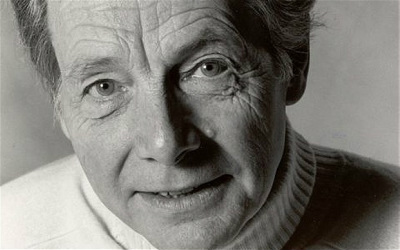 Michael Langham
Michael Langham
MICHAEL LANGHAM, My Shakespeare teacher at Juilliard

FRANCIS LODER
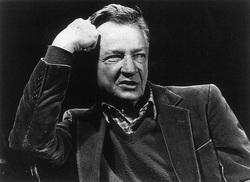 James Moll
James Moll
JAMES WILLIAM MOLL, my acting teacher at UT.
James Moll was a wonderful first acting teacher for me. He was gentle and nurturing and a most enthusiastic devotee of the dramatic arts. He served in the U.S. Army for three years in the infantry in Italy during World War II. Mr. Moll had a lot of real world experience that could have made him a rougher, less kind person. He took equal notice of all of his students. His main focus was the Stanislavski method but he was also well versed in the techniques and ideas that shaped the international theatre as he traveled and worked abroad extensively. He covered not only technique on acting but also how to approach the text and subtext. He created a safe place to transform into character.
“When I direct any play, I look for the simple, human thoughts, feelings and actions involved...roles aren’t just patched onto life, but emerge from what the playwright has lived, learned, and felt. A play speaks to the audience with words...the actions of actors complement the words harvested from experiences of life.” James Moll
James Moll was a wonderful first acting teacher for me. He was gentle and nurturing and a most enthusiastic devotee of the dramatic arts. He served in the U.S. Army for three years in the infantry in Italy during World War II. Mr. Moll had a lot of real world experience that could have made him a rougher, less kind person. He took equal notice of all of his students. His main focus was the Stanislavski method but he was also well versed in the techniques and ideas that shaped the international theatre as he traveled and worked abroad extensively. He covered not only technique on acting but also how to approach the text and subtext. He created a safe place to transform into character.
“When I direct any play, I look for the simple, human thoughts, feelings and actions involved...roles aren’t just patched onto life, but emerge from what the playwright has lived, learned, and felt. A play speaks to the audience with words...the actions of actors complement the words harvested from experiences of life.” James Moll
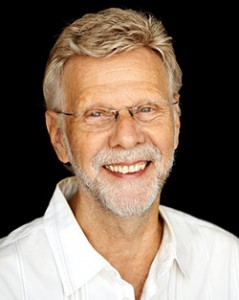
ERIC MORRIS
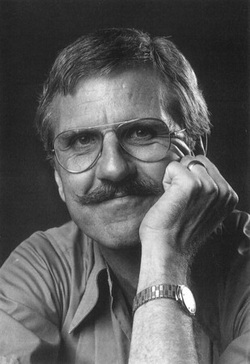 Paul Reinhardt
Paul Reinhardt
PAUL REINHARDT, my UT Costume teacher.
Dr. Paul Reinhardt was a most sophisticated genius in the field of costume design. I never completely understood my character until I put on a Reinhardt costume. My fellow students were intimidated by him. He had a keen intellect and a sharp wit that no one particularly wanted focused on them. I thought he had great charisma and his designs were elegant with displayed restraint. It was an intimate experience in the closed space of the dressing room with him. He would ask a lot of questions about the character while pinning the patterns together. I always emerged with a greater understanding of my character and to put on the final costume was an epiphany. Unfortunately he spoiled me for any other costume designer. I have felt mostly let down with one exception that managed to meet with Dr. Reinhardt’s design aesthetic.
Dr. Paul Reinhardt was a most sophisticated genius in the field of costume design. I never completely understood my character until I put on a Reinhardt costume. My fellow students were intimidated by him. He had a keen intellect and a sharp wit that no one particularly wanted focused on them. I thought he had great charisma and his designs were elegant with displayed restraint. It was an intimate experience in the closed space of the dressing room with him. He would ask a lot of questions about the character while pinning the patterns together. I always emerged with a greater understanding of my character and to put on the final costume was an epiphany. Unfortunately he spoiled me for any other costume designer. I have felt mostly let down with one exception that managed to meet with Dr. Reinhardt’s design aesthetic.
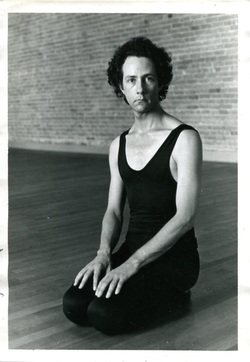 Powell "Punky" Shepard
Powell "Punky" Shepard
"PUNKY" SHEPARD, my dance drama teacher at UT
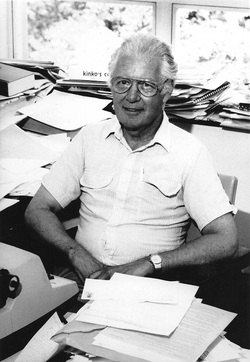 Webster Smalley
Webster Smalley
WEBSTER SMALLEY, my playwriting teacher.
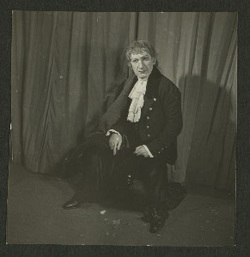 Boris Tumarin
Boris Tumarin
BORIS TUMARIN
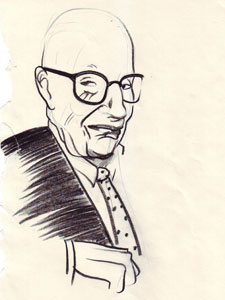 Robert Williams
Robert Williams
ROBERT WILLIAMS, my voice teacher at Juilliard.
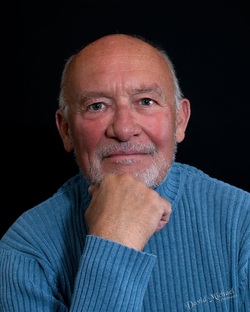
LAIRD WILLIAMSON
Laird Williamson has been acting and directing nationally for over 45 years for companies like Denver Center Theatre Company, American Conservatory Theatre, Oregon Shakespeare Festival, San Jose Repertory, Shakespeare Theatre Company in Washington, DC to name a few.
I met him at UT in the Drama Department in 1970 when he was casting “Trojan Women”. He cast me as 'Hecuba' a queen in her 80's when I was barely in my 20's. When Laird showed up at rehearsals with a waist weight belt and ankle weights for me to wear, I knew I was in for it. He drove out the girly in my voice and calibrated my emotional instrument so the text came out like an aria. Every single rehearsal was a marathon of endurance as he led me on the journey of all the emotional places the old queen had to go. I’m a natural tragic romantic so on that level I vibrated with the high opera of the piece. The cool thing about Laird is he saw that possibility before he really knew me. He works very personally with each of his cast members to bring out the character’s inner life. This was the role that hooked me on acting. It was my first deep experience with the Dramatic Muse.
He cast me as Tamora Queen of the Goths in “Titus Andronicus” at the Oregon Shakespeare Festival. Poor guy. At that time, I was very invested in being liked and there’s pretty much nothing likeable about Tamora so he had to move through a whole lot of my ego resistance. But leave it to Laird, he loves a challenge.
My favorite memories of Laird were his magical recitals of the poet Carl Sandburg. He would play a record of Sandburg reciting a poem and then act out each of the characters using his body and voice in such a way that would leave us giddy. Laird is one of two adult people I know that never left the very best of childhood behind. He has a powerful imagination and it drives his artistic vision. His performance of Shylock in "The Merchant of Venice" inspired the development of the antagonist, "Mr. Shay Daloney" in the first piece of my trilogy, "Love After Life".
Laird Williamson has been acting and directing nationally for over 45 years for companies like Denver Center Theatre Company, American Conservatory Theatre, Oregon Shakespeare Festival, San Jose Repertory, Shakespeare Theatre Company in Washington, DC to name a few.
I met him at UT in the Drama Department in 1970 when he was casting “Trojan Women”. He cast me as 'Hecuba' a queen in her 80's when I was barely in my 20's. When Laird showed up at rehearsals with a waist weight belt and ankle weights for me to wear, I knew I was in for it. He drove out the girly in my voice and calibrated my emotional instrument so the text came out like an aria. Every single rehearsal was a marathon of endurance as he led me on the journey of all the emotional places the old queen had to go. I’m a natural tragic romantic so on that level I vibrated with the high opera of the piece. The cool thing about Laird is he saw that possibility before he really knew me. He works very personally with each of his cast members to bring out the character’s inner life. This was the role that hooked me on acting. It was my first deep experience with the Dramatic Muse.
He cast me as Tamora Queen of the Goths in “Titus Andronicus” at the Oregon Shakespeare Festival. Poor guy. At that time, I was very invested in being liked and there’s pretty much nothing likeable about Tamora so he had to move through a whole lot of my ego resistance. But leave it to Laird, he loves a challenge.
My favorite memories of Laird were his magical recitals of the poet Carl Sandburg. He would play a record of Sandburg reciting a poem and then act out each of the characters using his body and voice in such a way that would leave us giddy. Laird is one of two adult people I know that never left the very best of childhood behind. He has a powerful imagination and it drives his artistic vision. His performance of Shylock in "The Merchant of Venice" inspired the development of the antagonist, "Mr. Shay Daloney" in the first piece of my trilogy, "Love After Life".
